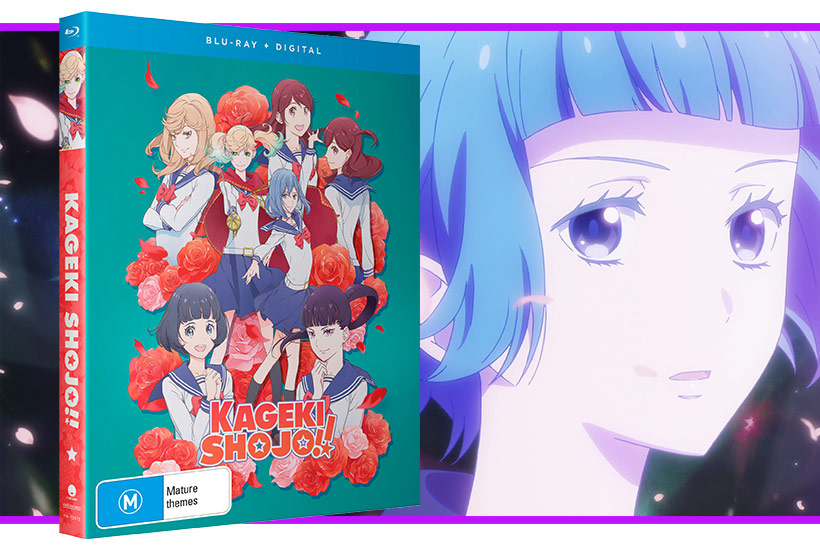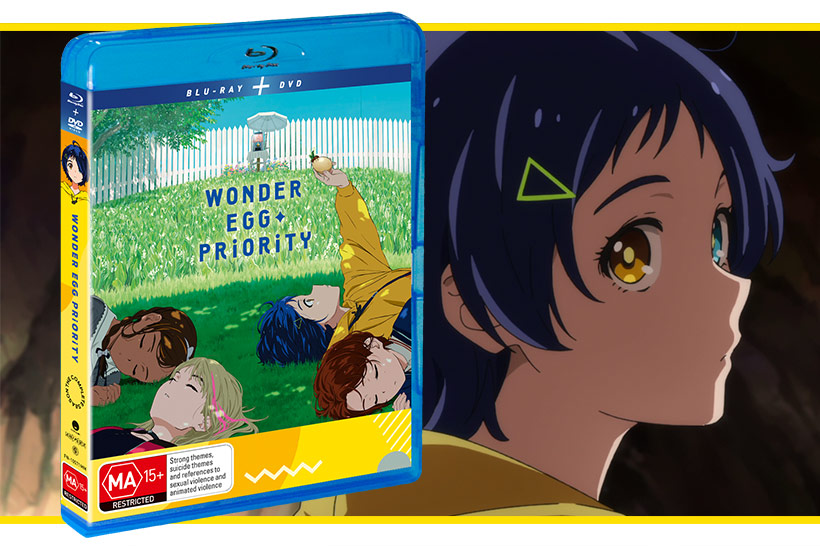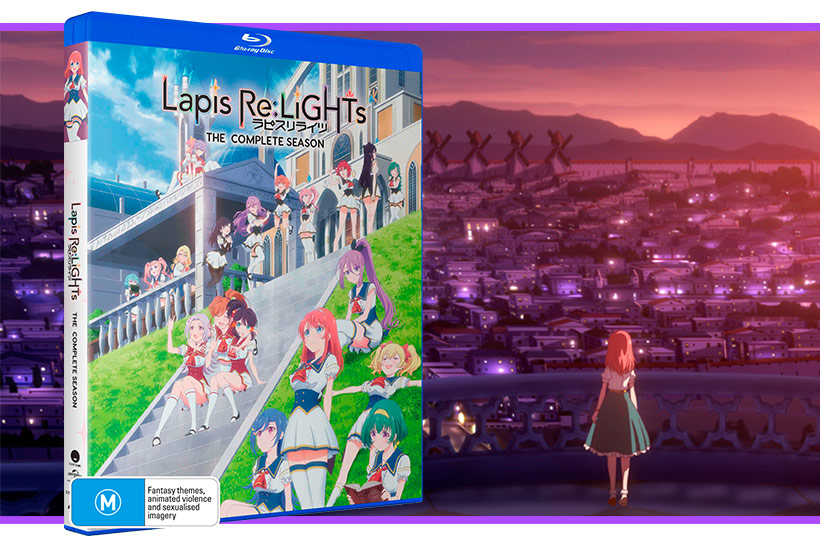Kageki Shojo’s the kind of production that doesn’t often get greenlit in Japan, let alone earmarked for a Western release, so it’s with a great deal of excitement that we can tuck into this one.
Ai Narata, expelled from her idol super group, is planning a fresh start at the prestigious all-girls musical and theatrical arts school, Kouka Academy. The annual intake is incredibly tight at only 40 students, with many aspiring young women often applying and auditioning multiple times to never be admitted. Ai’s lone-wolf approach to life is turned upside down when she’s paired with the boisterous (and super tall) Sarasa Watanabe, whose cheerful disposition chips away at her cold exterior to help her not only tap into Ai’s talent for the stage, but also at discovering the importance of friendship and camaraderie amongst her insanely competitive classmates.
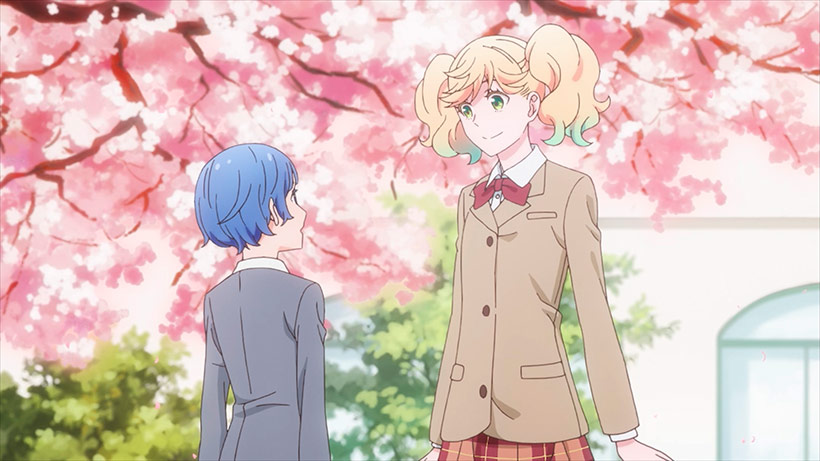
I’ve been a big fan of shoujo anime (well, if we’re splitting hairs this is possibly closer to a josei anime) for a long time. Magic girl stuff was my gateway drug so to speak, especially those packed with slice of life awesomeness like Sailor Moon and Card Captor Sakura. Then one day I stumbled upon Marmalade Boy and Kodmo no Omocha, then suddenly all that melodrama, love triangles and a female perspective made for compulsive viewing (and reading). After what felt like a long break, around seven years ago I stumbled upon Blue Spring Ride which reminded me just how much I love a good girly anime. Kageki Shojo seemed like a perfect excuse to go back to the well!
I wasn’t quite sure what to expect with Kageki Shojo – I was familiar with the all-female stage musical scene via the real-world adaptations of Sailor Moon and Sakura Taisen (the latter also being a series about all-female stage musical troupes), so I was hoping for a series that went a little deep into genre and fan scene with some drama sprinkled in for good measure.
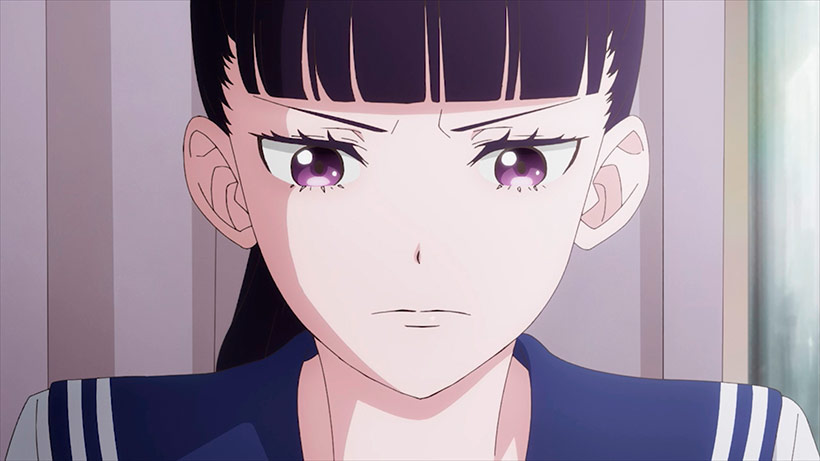
To this extent, Kageki Shojo ticked the boxes – high school setting, cherry blossoms, in-fighting, musical production stuff and lots of drama.
What I wasn’t expecting was the deep dive the show took with an at-times strong feminist lens on some important, and often under-represented in anime, themes affecting young women.
The show’s lead, Ai, is the core focus as we watch her slow but steady progress in learning how to build trust and relationships, something explored through interactions with Sarasa. Ai’s history of childhood neglect and trauma are represented with both empathy and dignity, rationalising her outwardly cold interactions with others and making her journey in Kageki Shojo all the more compelling.
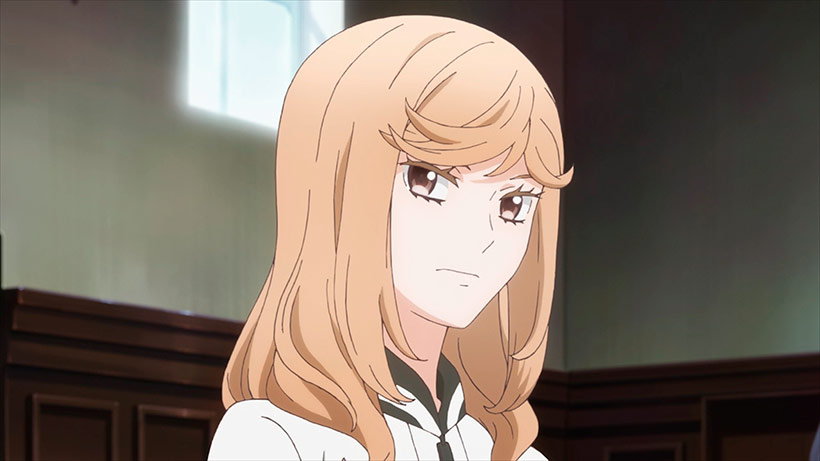
At times, Ai’s roommate Sarasa is seemingly given the role of a supporting character, but through exploring her background in the numerous trigger points in the narrative we get a welcome sense of depth beyond genki vibes she brings to the show.
Surprisingly, we also get a number of other character-focused episodes throughout the 12-episode run, a nice touch given Kageki Shojo is trying to tell a focused narrative covering this portion of the cast’s time at their school while educating the viewer on the subcultures around the all-female musical troupe industry.
I loved the production values applied to Kageki Shojo – given the show would have far less commercial reach than your average shounen anime, the effort put into adapting the beautifully feminine shoujo/josei style into a contemporary anime TV series is a welcome one. The colour direction is bold and expressive, while the attention to detail on keys and character attributes make it super engaging to watch. The big sequences have an appropriate level of melodrama applied to them visually, and the casting is excellent.
The local release of Kageki Shojo is another reverse-import from Funimation’s Region A release. This means the content is spread across 2 discs, it’s bilingual and encoding is solid. The usual cardboard slipcase is included which I’ve become quite fond of ever since Madman (well, Crunchyroll now?) and Funimation started coordinating their releases as such. Extras are minimal, featuring op/eds and promo videos.
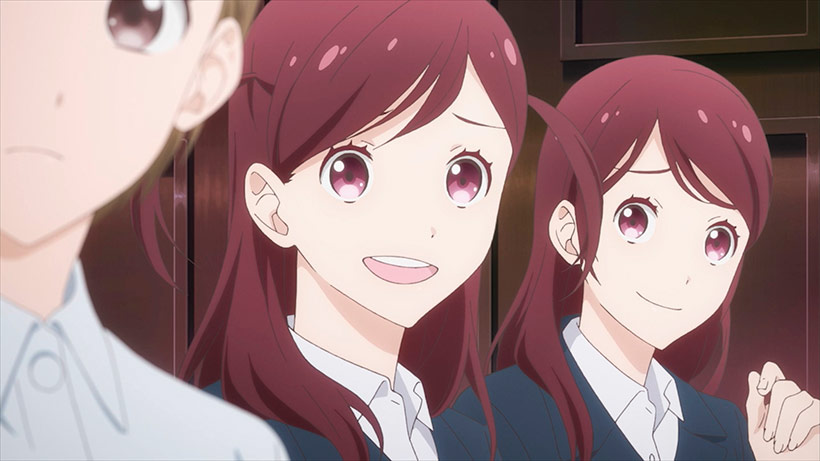
Kageki Shojo is a fantastic, melodramatic and thoroughly enjoyable anime that is adept at indulging in the hyper-genki energy of geeking out over a niche subculture while exploring the pressures and issues surrounding young women, especially those trying to break out in the performing arts. Highly recommended, especially if you enjoy shoujo or josei anime and manga.
A review copy was provided by Madman Entertainment to the author for the purpose of this review.

